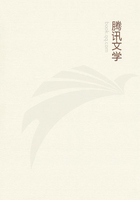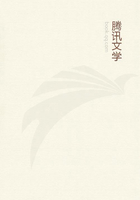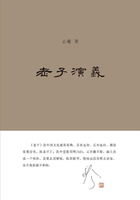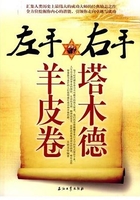An event which occurred in 1882 revealed and accentuated the feelings of the nation. As the Queen, at Windsor, was walking from the train to her carriage, a youth named Roderick Maclean fired a pistol at her from a distance of a few yards. An Eton boy struck up Maclean's arm with an umbrella before the pistol went off; no damage was done, and the culprit was at once arrested. This was the last of a series of seven attempts upon the Queen--attempts which, taking place at sporadic intervals over a period of forty years, resembled one another in a curious manner. All, with a single exception, were perpetrated by adolescents, whose motives were apparently not murderous, since, save in the case of Maclean, none of their pistols was loaded. These unhappy youths, who, after buying their cheap weapons, stuffed them with gunpowder and paper, and then went off, with the certainty of immediate detection, to click them in the face of royalty, present a strange problem to the psychologist. But, though in each case their actions and their purposes seemed to be so similar, their fates were remarkably varied. The first of them, Edward Oxford, who fired at Victoria within a few months of her marriage, was tried for high treason, declared to be insane, and sent to an asylum for life. It appears, however, that this sentence did not commend itself to Albert, for when, two years later, John Francis committed the same of fence, and was tried upon the same charge, the Prince propounced that there was no insanity in the matter. "The wretched creature," he told his father, was "not out of his mind, but a thorough scamp." "I hope," he added, "his trial will be conducted with the greatest strictness." Apparently it was; at any rate, the jury shared the view of the Prince, the plea of insanity was, set aside, and Francis was found guilty of high treason and condemned to death; but, as there was no proof of an intent to kill or even to wound, this sentence, after a lengthened deliberation between the Home Secretary and the Judges, was commuted for one of transportation for life. As the law stood, these assaults, futile as they were, could only be treated as high treason; the discrepancy between the actual deed and the tremendous penalties involved was obviously grotesque; and it was, besides, clear that a jury, knowing that a verdict of guilty implied a sentence of death, would tend to the alternative course, and find the prisoner not guilty but insane--a conclusion which, on the face of it, would have appeared to be the more reasonable. In 1842, therefore, an Act was passed making any attempt to hurt the Queen a misdemeanor, punishable by transportation for seven years, or imprisonment, with or without hard labour, for a term not exceeding three years--the misdemeanant, at the discretion of the Court, "to be publicly or privately whipped, as often, and in such manner and form, as the Court shall direct, not exceeding thrice." The four subsequent attempts were all dealt with under this new law; William Bean, in 1842, was sentenced to eighteen months' imprisonment; William Hamilton, in 1849, was transported for seven years; and, in 1850, the same sentence was passed upon Lieutenant Robert Pate, who struck the Queen on the head with his cane in Piccadilly. Pate, alone among these delinquents, was of mature years; he had held a commission in the Army, dressed himself as a dandy, and was, the Prince declared, "manifestly deranged." In 1872 Arthur O'Connor, a youth of seventeen, fired an unloaded pistol at the Queen outside Buckingham Palace; he was immediately seized by John Brown, and sentenced to one year's imprisonment and twenty strokes of the birch rod. It was for his bravery upon this occasion that Brown was presented with one of his gold medals. In all these cases the jury had refused to allow the plea of insanity; but Roderick Maclean's attempt in 1882 had a different issue. On this occasion the pistol was found to have been loaded, and the public indignation, emphasised as it was by Victoria's growing popularity, was particularly great. Either for this or for some other reason the procedure of the last forty years was abandoned, and Maclean was tried for high treason. The result was what might have been expected: the jury brought in a verdict of "not guilty, but insane"; and the prisoner was sent to an asylum during Her Majesty's pleasure. Their verdict, however, produced a remarkable consequence. Victoria, who doubtless carried in her mind some memory of Albert's disapproval of a similar verdict in the case of Oxford, was very much annoyed. What did the jury mean, she asked, by saying that Maclean was not guilty? It was perfectly clear that he was guilty--she had seen him fire off the pistol herself. It was in vain that Her Majesty's constitutional advisers reminded her of the principle of English law which lays down that no man can be found guilty of a crime unless he be proved to have had a criminal intention. Victoria was quite unconvinced. "If that is the law," she said, "the law must be altered:" and altered it was. In 1883 an Act was passed changing the form of the verdict in cases of insanity, and the confusing anomaly remains upon the Statute Book to this day.
But it was not only through the feelings--commiserating or indignant--of personal sympathy that the Queen and her people were being drawn more nearly together; they were beginning, at last, to come to a close and permanent agreement upon the conduct of public affairs. Mr. Gladstone's second administration (1880-85) was a succession of failures, ending in disaster and disgrace; liberalism fell into discredit with the country, and Victoria perceived with joy that her distrust of her Ministers was shared by an ever-increasing number of her subjects. During the crisis in the Sudan, the popular temper was her own. She had been among the first to urge the necessity of an expedition to Khartoum, and, when the news came of the catastrophic death of General Gordon, her voice led the chorus of denunciation which raved against the Government. In her rage, she despatched a fulminating telegram to Mr. Gladstone, not in the usual cypher, but open; and her letter of condolence to Miss Gordon, in which she attacked her Ministers for breach of faith, was widely published. It was rumoured that she had sent for Lord Hartington, the Secretary of State for War, and vehemently upbraided him. "She rated me," he was reported to have told a friend, "as if I'd been a footman." "Why didn't she send for the butler?" asked his friend. "Oh," was the reply, "the butler generally manages to keep out of the way on such occasions."
But the day came when it was impossible to keep out of the way any longer. Mr. Gladstone was defeated, and resigned. Victoria, at a final interview, received him with her usual amenity, but, besides the formalities demanded by the occasion, the only remark which she made to him of a personal nature was to the effect that she supposed Mr. Gladstone would now require some rest. He remembered with regret how, at a similar audience in 1874, she had expressed her trust in him as a supporter of the throne; but he noted the change without surprise. "Her mind and opinions," he wrote in his diary afterwards, "have since that day been seriously warped."
Such was Mr. Gladstone's view,; but the majority of the nation by no means agreed with him; and, in the General Election of 1886, they showed decisively that Victoria's politics were identical with theirs by casting forth the contrivers of Home Rule--that abomination of desolation--into outer darkness, and placing Lord Salisbury in power. Victoria's satisfaction was profound. A flood of new unwonted hopefulness swept over her, stimulating her vital spirits with a surprising force. Her habit of life was suddenly altered; abandoning the long seclusion which Disraeli's persuasions had only momentarily interrupted, she threw herself vigorously into a multitude of public activities. She appeared at drawing-rooms, at concerts, at reviews; she laid foundation-stones; she went to Liverpool to open an international exhibition, driving through the streets in her open carriage in heavy rain amid vast applauding crowds. Delighted by the welcome which met her everywhere, she warmed to her work. She visited Edinburgh, where the ovation of Liverpool was repeated and surpassed. In London, she opened in high state the Colonial and Indian Exhibition at South Kensington. On this occasion the ceremonial was particularly magnificent; a blare of trumpets announced the approach of Her Majesty; the "Natiohal Anthem" followed; and the Queen, seated on a gorgeous throne of hammered gold, replied with her own lips to the address that was presented to her. Then she rose, and, advancing upon the platform with regal port, acknowledged the acclamations of the great assembly by a succession of curtseys, of elaborate and commanding grace.
Next year was the fiftieth of her reign, and in June the splendid anniversary was celebrated in solemn pomp. Victoria, surrounded by the highest dignitaries of her realm, escorted by a glittering galaxy of kings and princes, drove through the crowded enthusiasm of the capital to render thanks to God in Westminster Abbey. In that triumphant hour the last remaining traces of past antipathies and past disagreements were altogether swept away. The Queen was hailed at once as the mother of her people and as the embodied symbol of their imperial greatness; and she responded to the double sentiment with all the ardour of her spirit. England and the people of England, she knew it, she felt it, were, in some wonderful and yet quite simple manner, hers. Exultation, affection, gratitude, a profound sense of obligation, an unbounded pride--such were her emotions; and, colouring and intensifying the rest, there was something else. At last, after so long, happiness--fragmentary, perhaps, and charged with gravity, but true and unmistakable none the less--had returned to her. The unaccustomed feeling filled and warmed her consciousness. When, at Buckingham Palace again, the long ceremony over, she was asked how she was, "I am very tired, but very happy," she said.















